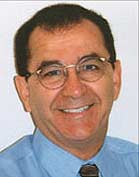Ida Institute has announced a new and expanded university course that is intended to build on the success of its first course with new content and a richer context of questions, reflections, dilemmas, case studies, role-plays, and ethnographic videos. The course is designed to influence the way students and professionals think, act, and feel about patient-centered care in hearing health.
“The Ida University Course was first introduced in 2010 and today, universities around the world have integrated the course into their curricula for undergraduate, graduate, and post-graduate audiology students,” said Ida Institute Managing Director Lise Lotte Bundesen. “New learnings and research on patient-centered care in audiology and an expanded Ida Toolbox have given us a wealth of materials to improve on the original coursework. The new University Course benefits from the collaborative efforts of the global Ida community, but especially the work of professor Deborah Von Hapsburg and a group of dedicated university professors and students.”
The Ida University Course was first developed by Deborah Von Hapsburg, PhD, associate professor, Department of Audiology and Speech Pathology, University of Tennessee, while she was a visiting scholar in residence at Ida Institute. Ida Institute reports that to create the newest edition of the Ida University Course, professor Von Hapsburg called upon the experience and expertise of more than 20 university professors and graduate students in audiology from around the world.
The new Ida University Course strengthens and expands the content of the three units that formed the core of the original coursework, says the Institute, including Framing the Clinical Encounter, Audiologist’s Perspective, and Client Perspective. Newly introduced is a unit on Extending Patient-Centered Care to Families and Children that focuses on understanding hearing loss from the perspective of the family, with special focus on children’s and teens’ experience of hearing loss.
Unchanged is the emphasis on interaction and collaboration. Lesson plans provide tools that encourage reflective practice, develop abilities and attitudes and instill new habits of clinical practice. Lectures, assignments and activities are designed to stimulate deep thinking by allowing students to construct knowledge. Students gain knowledge in the context of real problems and learn to use that knowledge to make decisions about what they understand and what they should do.
The new Ida Institute University Course and the entire Ida Toolbox are freely shared and available for download on the Ida Institute website.
Source: Ida Institute
Photo credit: Ida Institute





